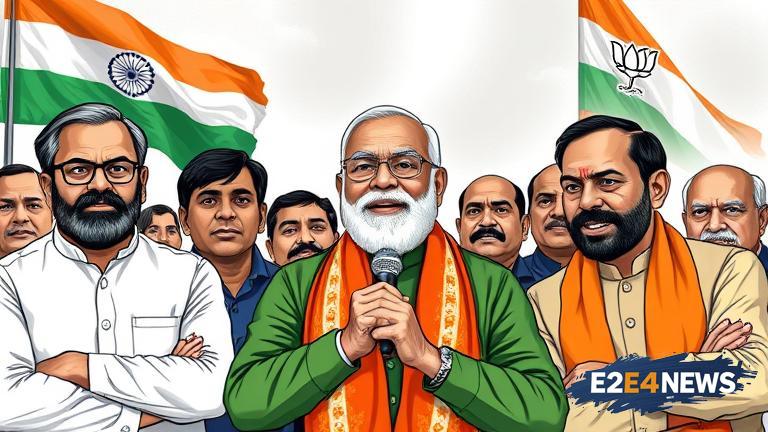The political landscape of Jammu and Kashmir has witnessed a significant shift in recent days, with various political parties taking to the streets to demand the restoration of statehood. The move comes as a response to the Bharatiya Janata Party’s (BJP) decision to revoke the special status of the region under Article 370 of the Indian Constitution. The parties, including the National Conference, Peoples Democratic Party, and Congress, have been vocal in their criticism of the BJP’s handling of the region, citing the need for greater autonomy and self-governance. The protests have been largely peaceful, with participants waving flags and banners, and chanting slogans demanding statehood. The issue of statehood has been a contentious one in Jammu and Kashmir, with many residents feeling that the region’s special status was unfairly revoked. The BJP has defended its decision, citing the need for greater integration with the rest of India. However, the opposition parties have argued that the move has led to a loss of autonomy and self-governance, and has had a negative impact on the region’s economy and social fabric. The protests have also highlighted the deep-seated divisions within the region, with some areas witnessing clashes between protesters and security forces. Despite the challenges, the political parties remain committed to their demand for statehood, and have vowed to continue their protests until their demands are met. The issue is likely to remain a major point of contention in the region, with the BJP facing criticism from opposition parties and civil society groups. The demand for statehood has also been supported by various civil society groups, who argue that the region’s unique cultural and linguistic identity must be protected. The protests have also drawn attention to the human rights situation in the region, with many residents alleging that they have been subjected to harassment and intimidation by security forces. The international community has also been watching the situation closely, with many countries expressing concern over the human rights situation in the region. The United Nations has also called for calm and restraint, and has urged the Indian government to respect the rights of the people of Jammu and Kashmir. The situation remains volatile, with the potential for further unrest and violence. The Indian government has been accused of using heavy-handed tactics to suppress the protests, including the use of tear gas and pellet guns. The opposition parties have also accused the government of attempting to silence dissenting voices, and of using arbitrary detention and harassment to intimidate protesters. Despite the challenges, the people of Jammu and Kashmir remain committed to their demand for statehood, and are likely to continue their protests until their demands are met. The issue is likely to remain a major point of contention in the region, with the BJP facing criticism from opposition parties and civil society groups. The demand for statehood has also been supported by various civil society groups, who argue that the region’s unique cultural and linguistic identity must be protected. The protests have also drawn attention to the human rights situation in the region, with many residents alleging that they have been subjected to harassment and intimidation by security forces. The situation remains volatile, with the potential for further unrest and violence. The Indian government has been accused of using heavy-handed tactics to suppress the protests, including the use of tear gas and pellet guns. The opposition parties have also accused the government of attempting to silence dissenting voices, and of using arbitrary detention and harassment to intimidate protesters. The people of Jammu and Kashmir are likely to continue their struggle for statehood, and the international community will be watching the situation closely. The region’s future remains uncertain, with the potential for further unrest and violence. The demand for statehood is likely to remain a major point of contention, with the BJP facing criticism from opposition parties and civil society groups. The situation is complex, with multiple stakeholders and interests at play. The Indian government must find a way to address the concerns of the people of Jammu and Kashmir, and to find a solution that respects the region’s unique cultural and linguistic identity. The opposition parties must also work together to find a common solution, and to ensure that the rights of the people of Jammu and Kashmir are protected. The international community must also play a role in finding a solution, and in ensuring that the human rights of the people of Jammu and Kashmir are respected. The situation is delicate, and requires a nuanced and sensitive approach. The people of Jammu and Kashmir deserve a peaceful and prosperous future, and it is the responsibility of all stakeholders to ensure that this is achieved.





